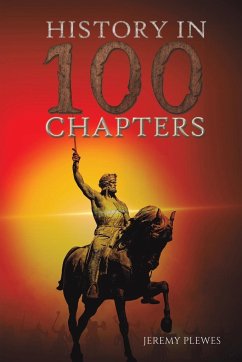Covering the period from when Earth began to the end of the Great War and designed for the general reader, this book aims to give a chronological account of life on Earth. It relates all parts of the world to each other for those whose acquaintance with history has been limited to short periods about different places and cultures. Each of the chapters has been designed to be self-contained so that browsing by episodes of time or place will be informative and interesting. Scientific discoveries, cultural advances and religious milestones illuminate how the human race has developed through the ages. The present state of the world, and our society (scientific, political and religious), is more easily understood when we understand how it came about; in this way, it is easier to comprehend present personal and national identity and morality. For those whose knowledge of history is largely confined to short detailed periods such as those of the Romans or the Tudors, perhaps studied at school, then this account sets out to fill the gaps both in time and in geography and show how they relate to one another, and what was happening across the world in the same era.







